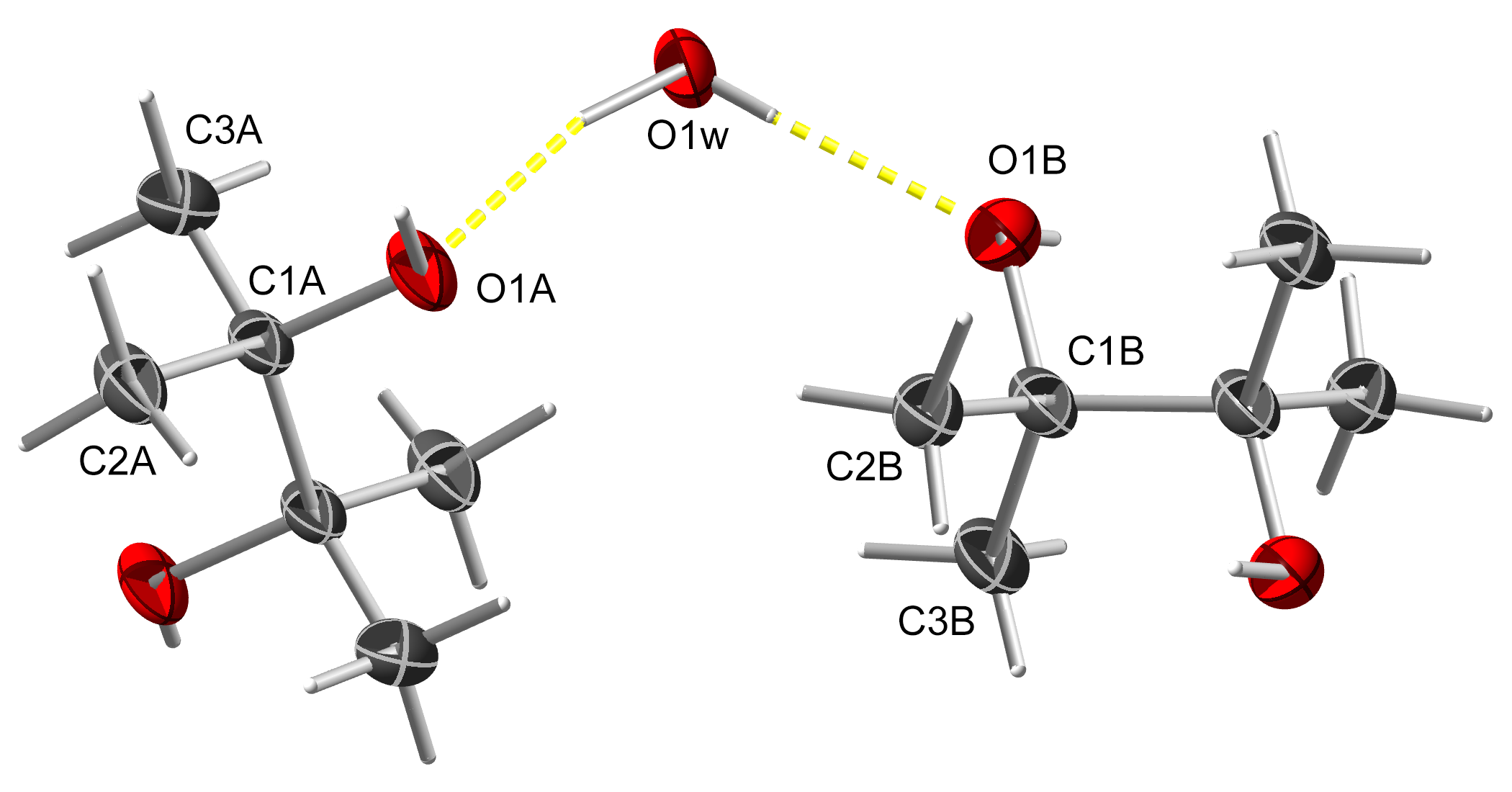1/6: Introduction
Not all cases of twinning by pseudo-merohedry can be handled by the TWIN command in
SHELXL.
This tutorial describes the crystal structure of pinacol monohydrate, which has primitive monoclinic
symmetry of type
P 2/n, but is four-fold twinned by virtue of a pseudo-tetragonal
I-centered supercell. Unlike
three-fold twinning in B21, there is no setting of the space group (conventional
or otherwise) that would allow use of the TWIN/BASF approach. This means that, for refinement using
SHELXL, a dataset in
SHELX 'HKLF 5' format is required.
The monohydrate phase of crystalline pinacol has been known since 1922. Despite attempts to determine
its structure, however, it remained unsolved until 2003. An account is given by
Hao et al. (2005), Acta Cryst.
B61, 689-699. An ellipsoid plot of the structure looks like this:
To enable you to follow along, the dataset of Hao
et al. (2005) is available here:
triP.hkl
At the time of the investigation in 2003, facilities within the data collection software (Nonius
collect ) for handling twins were far less sophisticated than are available today
(e.g. in Bruker
APEX3 or Rigaku-Oxford
CrysAlis ). Thus, to ensure that no
experimental information was inadvertently lost or skipped, data were collected assuming a primitive
triclinic unit cell. That cell allowed for integration of intensities for all the observable
diffraction maxima, but without making any assumptions about crystal symmetry. The cell dimensions
were:
a = 12.9001(7) Å
b = 12.8941(7) Å
c = 12.8917(9) Å
α = 107.517(3)°
β = 110.359(3)°
γ = 110.581(3)°
In this unit cell
a,
b,
c are all about the same, as are
β and
γ, so we can expect it to transform to
something
of higher symmetry. We'll tackle the problem of structure solution and accounting for the twinning
step-by-step, in small, hopefully straightforward segments. Luckily, pinacol has few atoms, so
molecular complexity should not get in the way.
This tutorial uses (and
assumes familiarity with) the following programs:
XPREP for analysis and file setup
SHELXD for structure solution
SHELXL for structure refinement
ShelXle for model building
Platon for structure analysis
To proceed, click on the 'Analysis and file set up with
XPREP ' link below.
